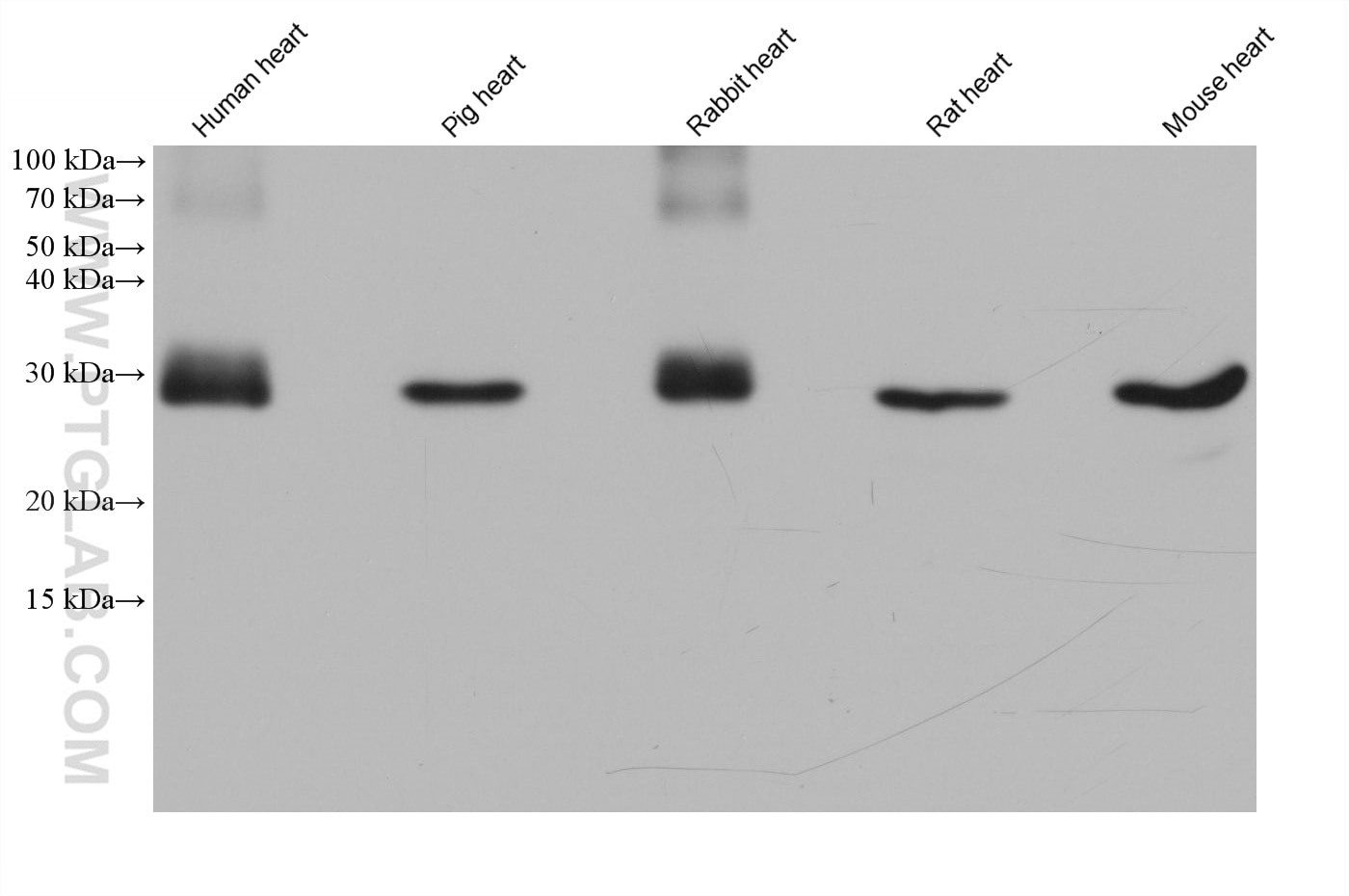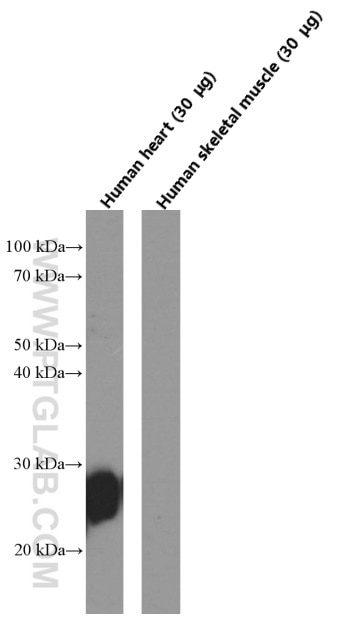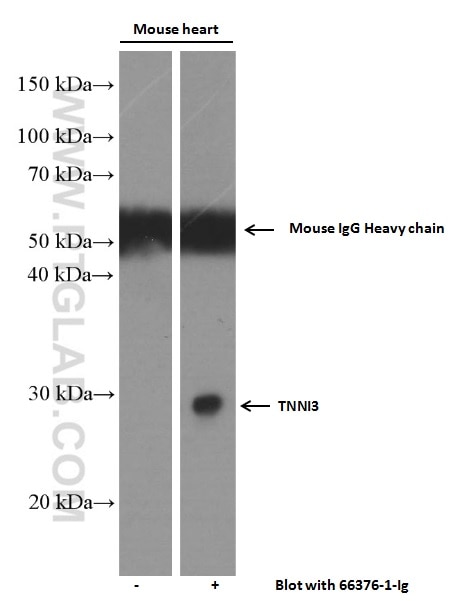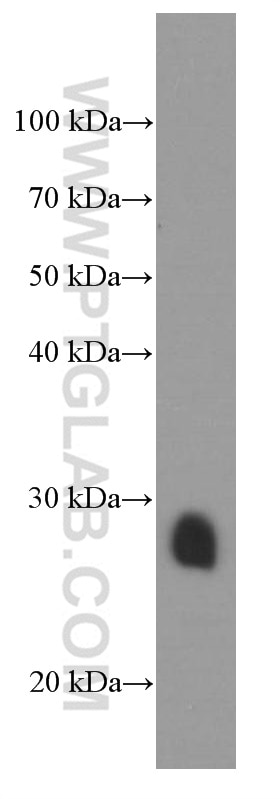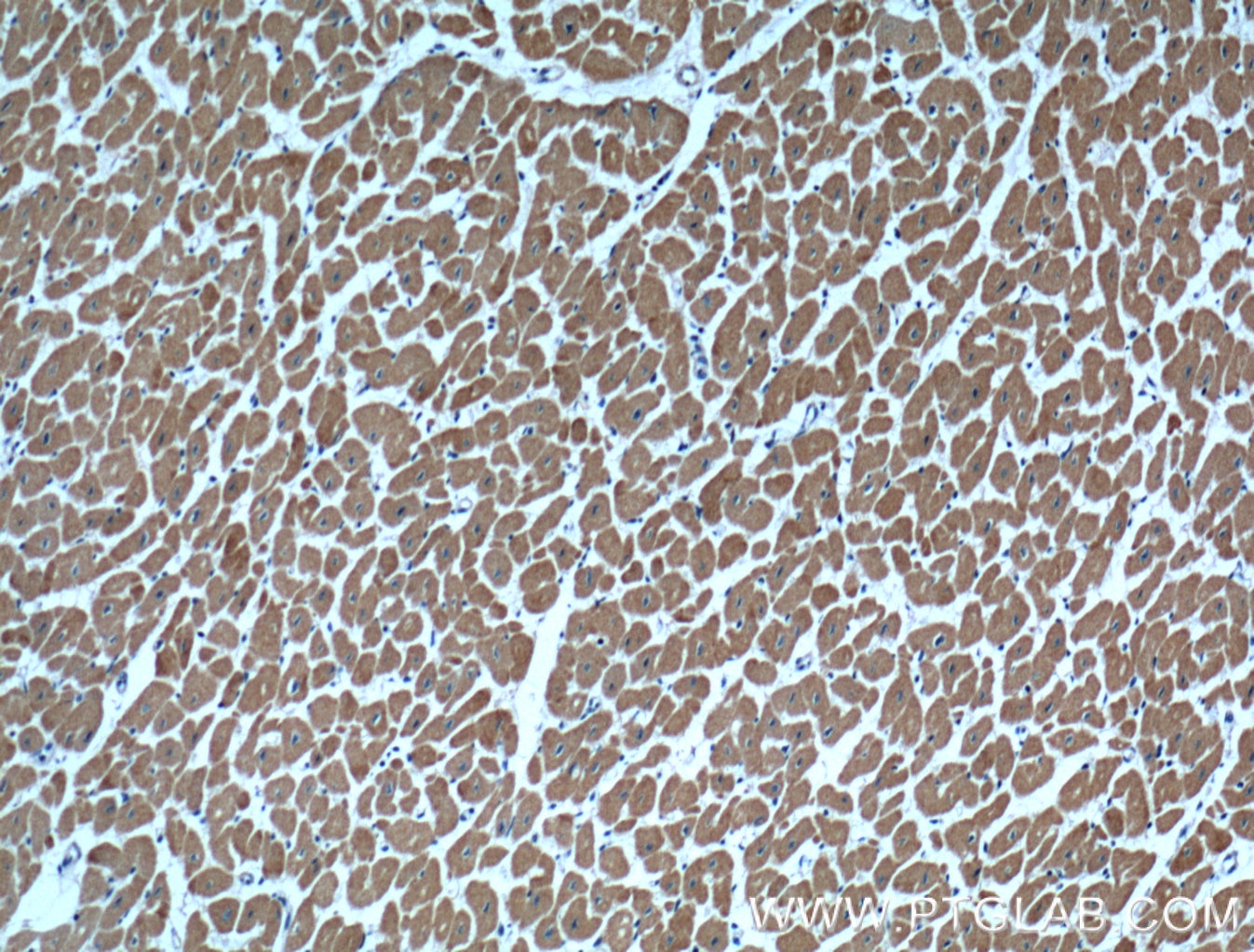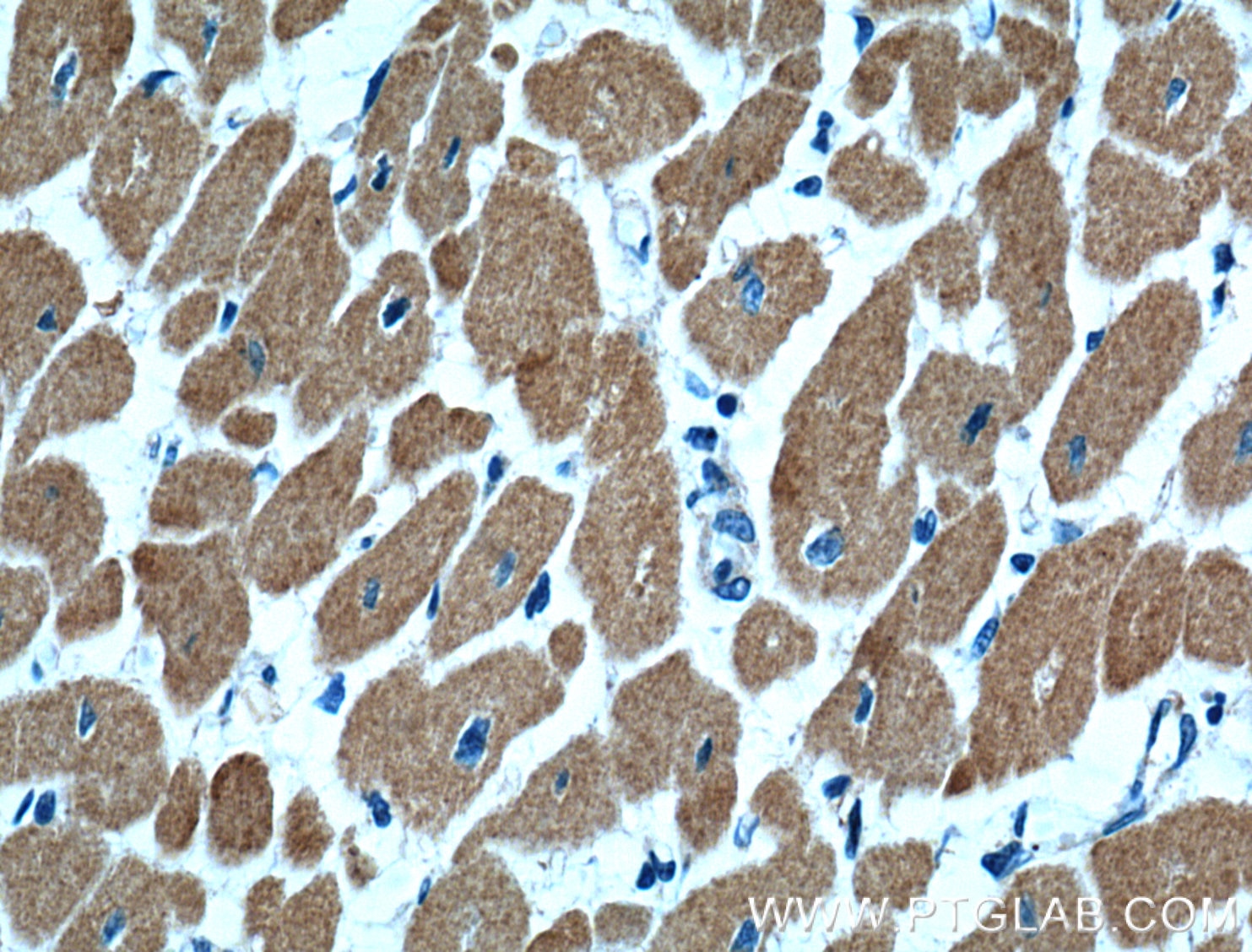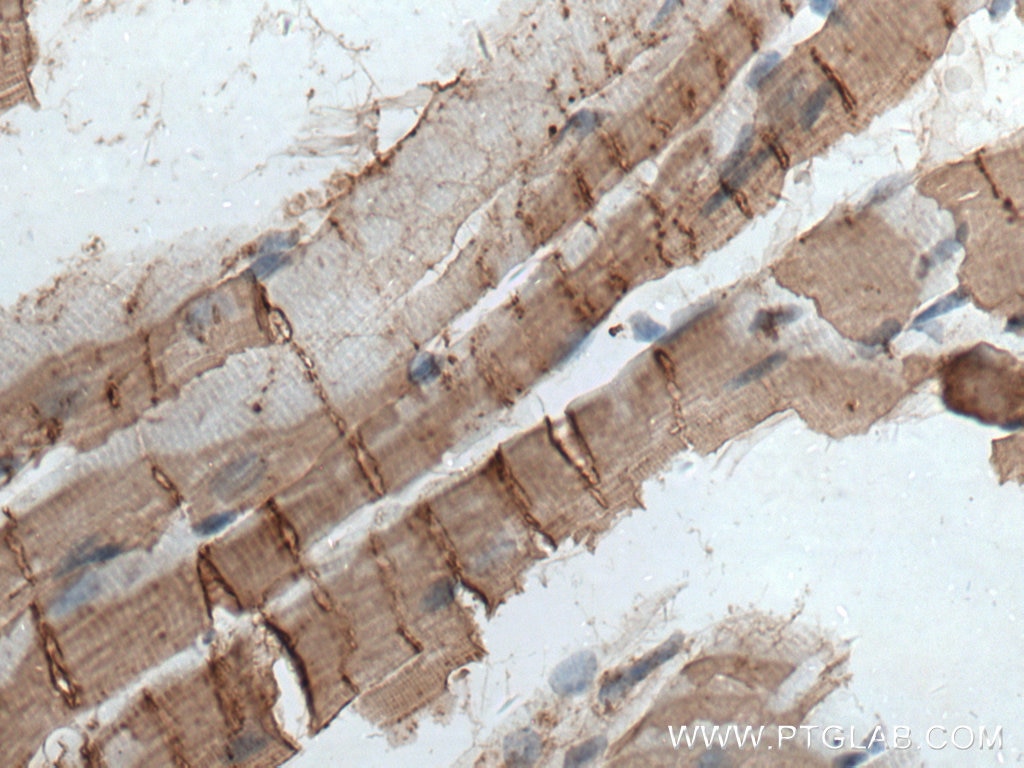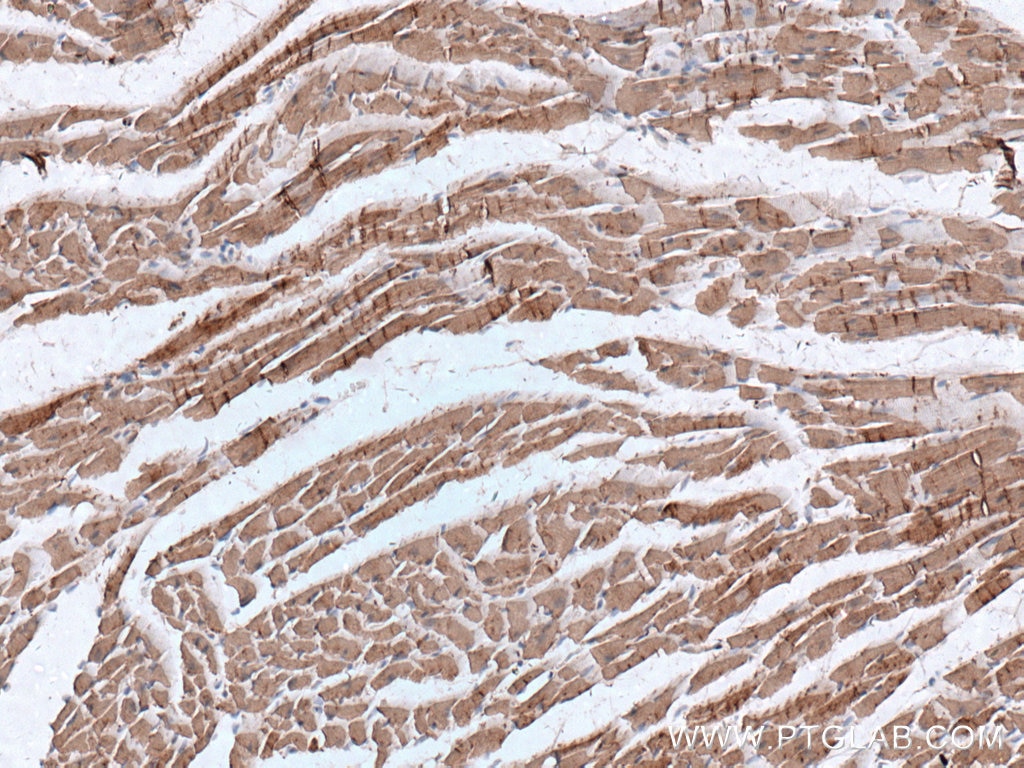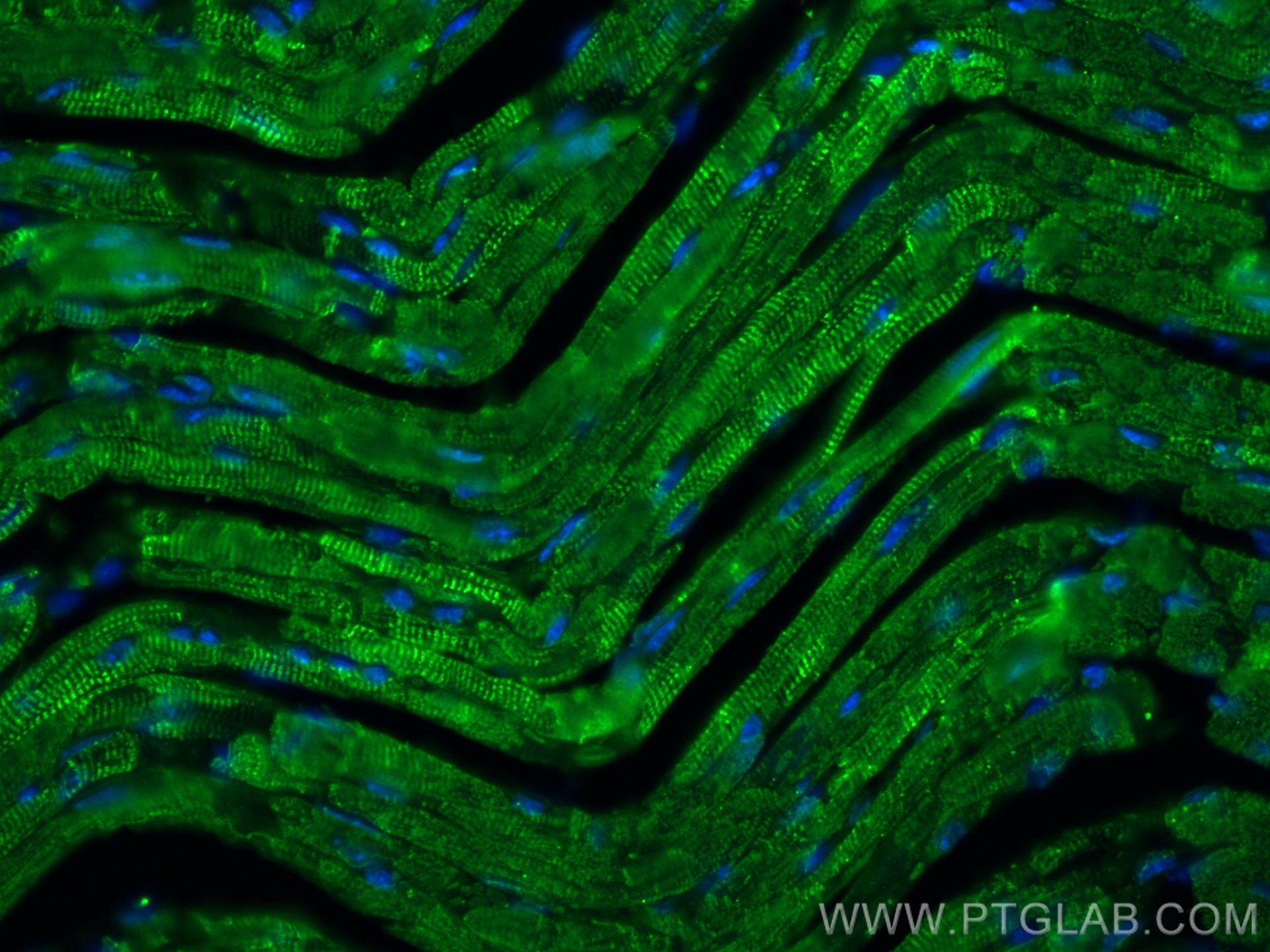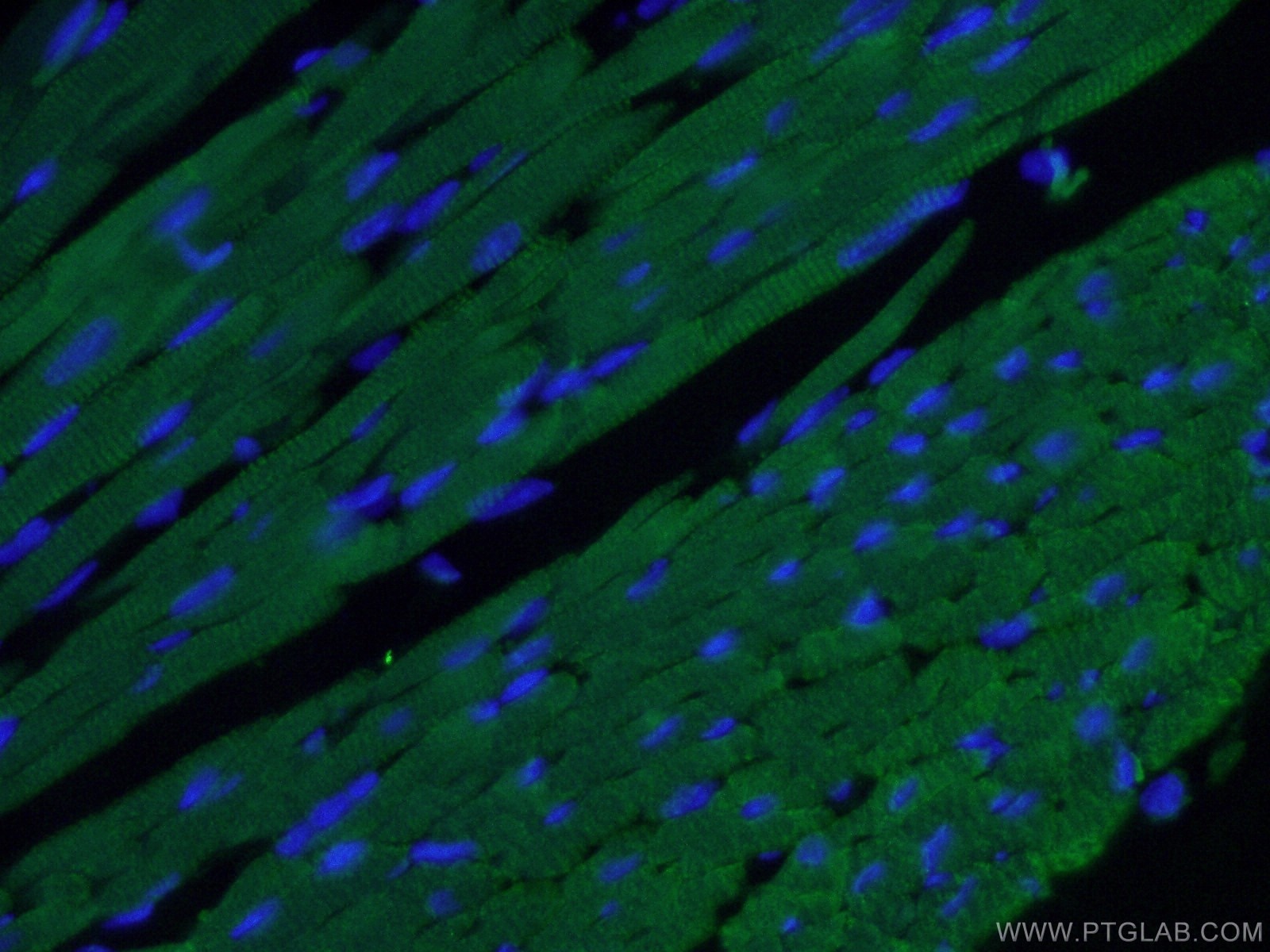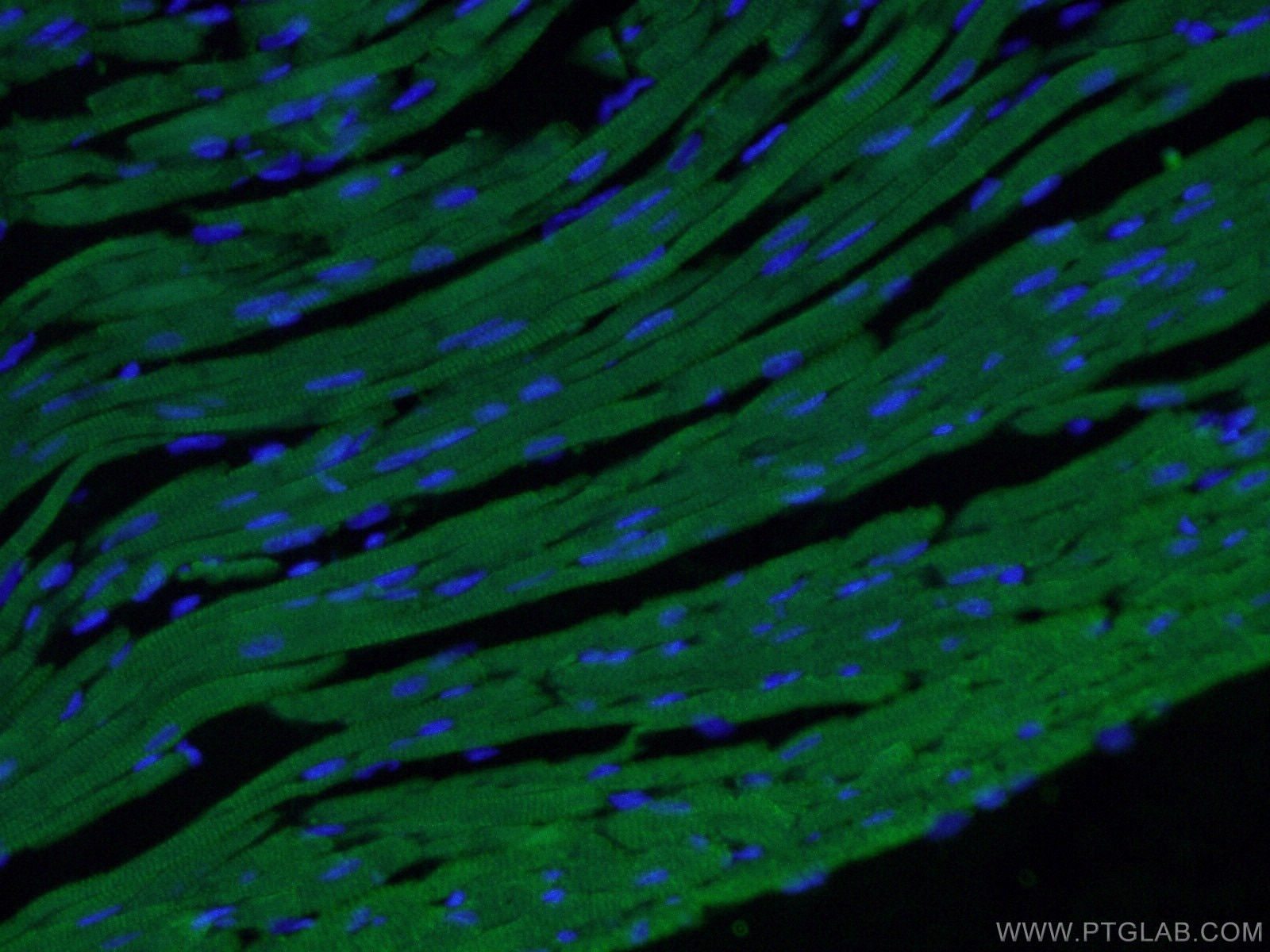Cardiac Troponin I Monoklonaler Antikörper
Cardiac Troponin I Monoklonal Antikörper für IF, IHC, WB, ELISA
Wirt / Isotyp
Maus / IgG1
Getestete Reaktivität
Hausschwein, human, Maus, Ratte
Anwendung
WB, ISFET, IHC, IF, ELISA
Konjugation
Unkonjugiert
CloneNo.
1D5D6
Kat-Nr. : 66376-1-Ig
Synonyme
Galerie der Validierungsdaten
Geprüfte Anwendungen
| Erfolgreiche Detektion in WB | humanes Herzgewebe, Hausschwein-Herzgewebe, Kaninchenherzgewebe, Mausherzgewebe, Rattenherzgewebe |
| Erfolgreiche Detektion in IHC | humanes Herzgewebe, Mausherzgewebe Hinweis: Antigendemaskierung mit TE-Puffer pH 9,0 empfohlen. (*) Wahlweise kann die Antigendemaskierung auch mit Citratpuffer pH 6,0 erfolgen. |
| Erfolgreiche Detektion in IF | Mausherzgewebe |
Empfohlene Verdünnung
| Anwendung | Verdünnung |
|---|---|
| Western Blot (WB) | WB : 1:5000-1:50000 |
| Immunhistochemie (IHC) | IHC : 1:50-1:500 |
| Immunfluoreszenz (IF) | IF : 1:200-1:800 |
| It is recommended that this reagent should be titrated in each testing system to obtain optimal results. | |
| Sample-dependent, check data in validation data gallery | |
Veröffentlichte Anwendungen
| WB | See 4 publications below |
| IF | See 6 publications below |
Produktinformation
66376-1-Ig bindet in WB, ISFET, IHC, IF, ELISA Cardiac Troponin I und zeigt Reaktivität mit Hausschwein, human, Maus, Ratten
| Getestete Reaktivität | Hausschwein, human, Maus, Ratte |
| In Publikationen genannte Reaktivität | human, Hausschwein, Maus, Ratte |
| Wirt / Isotyp | Maus / IgG1 |
| Klonalität | Monoklonal |
| Typ | Antikörper |
| Immunogen | Cardiac Troponin I fusion protein Ag16758 |
| Vollständiger Name | troponin I type 3 (cardiac) |
| Berechnetes Molekulargewicht | 210 aa, 24 kDa |
| Beobachtetes Molekulargewicht | 26-28 kDa |
| GenBank-Zugangsnummer | BC096165 |
| Gene symbol | TNNI3 |
| Gene ID (NCBI) | 7137 |
| Konjugation | Unkonjugiert |
| Form | Liquid |
| Reinigungsmethode | Protein-G-Reinigung |
| Lagerungspuffer | PBS mit 0.02% Natriumazid und 50% Glycerin pH 7.3. |
| Lagerungsbedingungen | Bei -20°C lagern. Nach dem Versand ein Jahr lang stabil Aliquotieren ist bei -20oC Lagerung nicht notwendig. 20ul Größen enthalten 0,1% BSA. |
Hintergrundinformationen
Troponin I (TnI) is the inhibitory subunit of troponin, the structural protein involved in the regulation of striated muscle contraction. Cardiac Troponin I (cTnI) is produced by cardiac muscle. Two other TnI isoforms (slow sTnI and fast sTnI) are produced by slow-twitch and fast-twitch skeletal muscles, respectively. cTnI has been considered as one of the most specific and sensitive markers of myocardial damage like acute myocardial infarction (AMI) for decades. Detection of cTnI in serum is widely accepted as a diagnostic tool in acute coronary syndromes. This antibody is specific to cTnI, but not cross-react with skeletal TnI.
Protokolle
| Produktspezifische Protokolle | |
|---|---|
| WB protocol for Cardiac Troponin I antibody 66376-1-Ig | Protokoll herunterladen |
| IHC protocol for Cardiac Troponin I antibody 66376-1-Ig | Protokoll herunterladen |
| IF protocol for Cardiac Troponin I antibody 66376-1-Ig | Protokoll herunterladen |
| Standard-Protokolle | |
|---|---|
| Klicken Sie hier, um unsere Standardprotokolle anzuzeigen |
Publikationen
| Species | Application | Title |
|---|---|---|
Biosens Bioelectron A handheld testing device for the fast and ultrasensitive recognition of cardiac troponin I via an ion-sensitive field-effect transistor | ||
Stem Cell Reports Physiological calcium combined with electrical pacing accelerates maturation of human engineered heart tissue | ||
Stem Cell Res Ther Intravenously transplanted mesenchymal stromal cells: a new endocrine reservoir for cardioprotection. | ||
J Cell Mol Med Scoparone alleviates Ang II-induced pathological myocardial hypertrophy in mice by inhibiting oxidative stress. | ||
Front Pharmacol Setanaxib (GKT137831) Ameliorates Doxorubicin-Induced Cardiotoxicity by Inhibiting the NOX1/NOX4/Reactive Oxygen Species/MAPK Pathway. |
Rezensionen
The reviews below have been submitted by verified Proteintech customers who received an incentive forproviding their feedback.
FH KARTHIKEYAN (Verified Customer) (11-20-2019) | We used this antibody to stain HL-1 cardiomyocyte cells, and the antibody works really well.
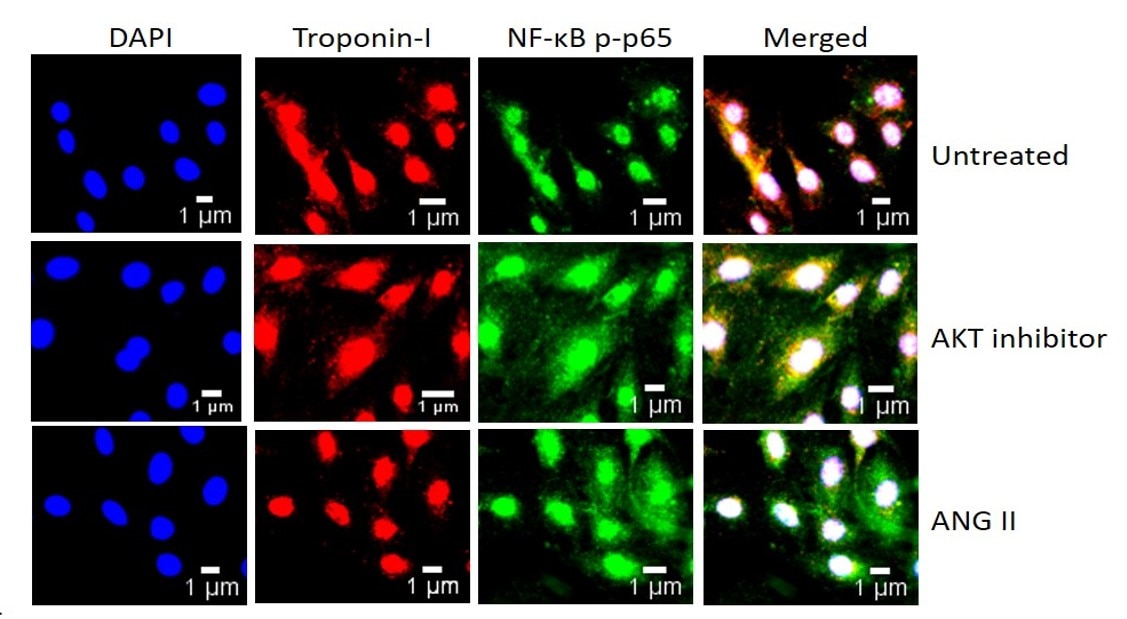 |
